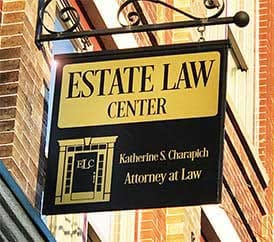Trusts FAQs
What is a Trust? Estate Law Center | Trusts | FAQ #28
A trust, if properly funded, is a means of managing and transferring assets outside of probate. Trusts may also be used as a means of protecting assets, as well as a manner of maintaining control of your assets after your death.
What are the reasons for having a revocable trust? Estate Law Center | Trusts | FAQ #29
A revocable trust is a trust that is established during one’s lifetime, and can be amended or revoked. If you have real property in a jurisdiction outside of Virginia, want to avoid probate, want to “manage assets” in trust after death, then a revocable trust may be a strong consideration.
I want different percentages to go to my children, how do I make that a part of my plan? Estate Law Center | Trusts | FAQ #30
This question is one with which parents frequently wrestle. There is no rule that a trustor must leave equal assets to his children, or any assets at all. Careful drafting language in your trust can address specific assets or percentages that you want to leave to your children.
What if I don’t want to leave any assets to a child? Estate Law Center | Trusts | FAQ #31
As challenging as the question is regarding leaving varied percentages to children, causing a greater degree of angst for some is the wish to preclude a child from any distribution. There is no rule that you have to leave a child any of your assets upon your death. Unfortunately, the reality exists that there are some children who have treated their parents in such a manner that the children simply do not deserve to receive a portion of their parents’ hard-earned estate. If a trustor wishes to preclude a child from receiving any assets, there is specific and somewhat harsh language that should be included in the trust document.
I hear my friends discussing revocable trusts, are there other types of trusts? Estate Law Center | Trusts | FAQ #32
Yes, some of the more common trusts are special needs trusts, asset protection trusts, testamentary trusts, income only trusts, charitable remainder trusts, life insurance trusts, real estate trusts, family trusts, and pet trusts.
Can I leave money for my dog to be cared for after I die? Can I leave assets for my cat to be cared for after my death? Can I leave money for my horse to be cared for after I die? Estate Law Center | Trusts | FAQ #33
Yes, you may set up a Pet Trust to make sure that your pets are cared for after your death. The funds can be used for specific expenditures that you itemize in the terms of the Pet Trust. The funds can also be used to provide a general stipend to the guardian that you appoint for your pets.
Who can be the Trustee of my trust? Estate Law Center | Trusts | FAQ #34
You may be the initial trustee of your revocable trust. That nomination appears logical and easy; it is often the question of successor trustees that presents a challenge. Who can you trust to step into the role of successor trustee should you become incapacitated and unable to manage your trust, or upon your passing? Consider naming a spouse, adult children, family member, or a friend. You may also consider naming an attorney, a CPA, or a bank as your successor trustee.
Can I control assets so they stay in my bloodline? Estate Law Center | Trusts | FAQ #35
Often clients want to make sure that their children and grandchildren have use of the funds in their estate, and that the assets do not transfer to a child’s spouse. Assets can be kept in trust for the benefit of future generations within one’s bloodline. The terms of the trust establishes the distribution and use conditions, such as for expenses like health, welfare, and education of the beneficiaries.
